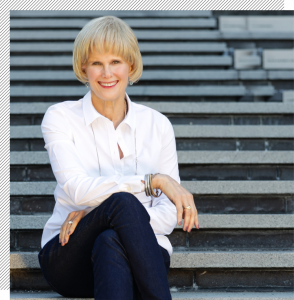Have you ever said to yourself, “I’d love to start a business but I’m just too old to be an entrepreneur.”
Think again.
The average age of founders behind fast-growing new ventures is 45, according to a business school study.
Over 45? Don’t worry. Data show that founders are likely to be successful starting a business in middle age or later, while young founders often stumble.
Of course, being a certain age is not a guarantee you’ll make it. But it’s not a reason to curtail yourself.
So what can you do to boost your success as an older entrepreneur?
Read on for career success tips you need to allay any anxieties and gain the confidence and moxie to succeed as older entrepreneurs.
Let’s look at 7 career success tips that are designed specifically to help older entrepreneurs succeed.
7 Ways to Power Career Success As Older Entrepreneurs
1. Create a Plan
This is important when you start your business later in life. The reality is you may not have 10 to 20 years to slowly build your business. If you want it to be profitable right out of the gate, you need specific strategies and goals from the beginning.
Here are some questions to ask yourself. How long you would like to run your business? Want to be a solopreneur? Prefer to hire a team? Will you close the business when you retire, sell it, or pass it on to a family member?
Take the time to answer these questions from the beginning. It will focus your business and help you to build a plan that accommodates those goals.
2. Know How to Leverage Technology As Older Entrepreneurs
Technology is a crucial part of doing business today. While it’s not necessary to master every technology on the market, you do need an understanding of what tools are available and how to use them to grow your business.
Here are a couple of essential technologies that you will need:
- A website. A website is your modern storefront. Without it, people won’t know who you are or what you do. And it’s easier than ever to create your own website. Tools like Squarespace and Wix give you powerful design features to create a modern, sleek website that represents your brand well. You don’t need to master complex coding languages, unless you want to. Simply learn how to use the platform’s tools and you will be all set.
- Social media. Social media is your brand’s connection to your audience. With billions of people worldwide interacting on social media, your brand needs to be there with them. Make the most of social media by posting and engaging with your audience. You’ll also want to learn how to use the social media marketing and ad tools on each network so that you can amplify your brand’s message.
Depending on your industry, there will no doubt be other technologies that you will need to learn. Figure out which ones give you the best features to reach your goals and learn them from the inside out to get the most out of them. Or hire someone who can do it for you. Just don’t leave it to chance.
3. Develop Savvy Sales Skills
Most likely, you’re not a salesperson — so why should you have sales skills? Because, even if you’re not selling a literal product, you need to be able to sell your ideas, both to clients and investors. And there is both an art and a science to selling that you need to master.
Let’s take, as an example, a pitch to investors. You need to convince them that you have a good business idea and that you will give them a return on their investment. To do this, you need to know your brand backwards and forwards, have confidence in your brand, and instill that confidence in your audience.
How do sales skills help you with this?
In sales, you need to understand what your customer is thinking and his or her pain points, or needs. And how to present your product — or, in this case, your idea — in a way that meets those needs.
As you market your brand and meet with clients, these same principles will help you.
4. Own Your Age
Don’t let anyone look down on your age. Be proud of it and the experience and knowledge that it stands for.
There will be those who consider your age to be a liability. But report after report shows that older entrepreneurs are valuable. While younger workers may have more energy, older workers have the experience and depth of knowledge and insight that companies need for success.
So stop thinking about your age as negative. Instead, recognize it for what it truly is: An advantage that fresh faced young ones lack.
5. Compensate for Your Deficits
Do you know what you don’t know? No matter how much you learn and the experience you have, there will be things that you don’t know or that are outside of your wheelhouse.
Don’t allow this to hold you back from career success.
Surround yourself with people who can fill in knowledge gaps and compensate for any of your weaknesses. It could be social media, website design, digital marketing, or even keeping you organized. Build a team of skilled people who can help in any space you need it.
Don’t think you have to hire full-time workers. Freelancers can help you with specific projects. A virtual assistant can manage your day and assist with other tasks. t. Since these are subcontractors, you don’t have to worry about giving them a set number of hours per week — simply tap into their expertise whenever you may need them.
Just-in-time assistance will let you strengthen your brand on your schedule.
6. Invest in a Career Coach
I’ve made no secret of the fact that I myself use a career coach and this has been one of my best investments. I have been in the business of helping other people to brand themselves and their businesses for over 20 years, but when it came to getting my new business of the ground, I found I needed a little push in the right direction. And my career coach gave me the push I needed.
I encourage everybody — especially older entrepreneurs — to make the investment in their own career coach.
Why?
A career coach can help you in a number of ways. For example, a career coach can help you to….
- Understand how your past experience feeds into your new business.
- See the necessary skills that you will need to develop.
- See your blind spots.
- Feel comfortable in your new role.
- Develop confidence as a business owner.
- Set and reach goals.
- And more.
If you’re feeling a little overwhelmed by your new role, I recommend looking for a compatible career coach who can help. And here I offer a plug for myself. I help experienced professionals gain focus, brand and market themselves to be more successful. Please schedule a call to learn more.
7. Consider Starting Small
If you’re not entirely comfortable throwing all your eggs in one basket, don’t. Test the waters to see if this new career is one you truly enjoy and have the stamina for.
Instead of quitting your job and launching a new business, you might want to start small and make it your side gig, working on it in between your regular job. This gives you the chance to lay the groundwork and get comfortable before you make the full transition over to your new brand.
But, word of caution, don’t allow fear to hold you back indefinitely. To start a new brand, it requires a little bit of a leap. Once you lay enough of a foundation and prove to yourself that you can do it, I urge you to make the full transition to your new career.
I wish you all the success in your future business endeavors. I hope these career success tips help you to ease the anxieties of starting a business as older entrepreneurs and take that leap to starting your new businesses.






